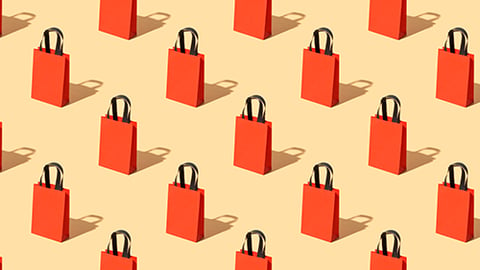How will consumers respond to increased prices in the wake of tariffs?
First Insight has released the findings of its new Tariffs & Trust: Why Retailers Risk Loyalty with Price Hikes study.
Despite the fact that 68% of brand and retail executives expect a negative reaction from customers—and 73% of consumers confirm they would be frustrated by price increases—83% of executives plan to raise prices anyway.
Consumers say they’ll respond to retailers’ decisions with either increased loyalty or decreased trust: Nearly 80% would feel more loyal to brands that absorb tariff-related increases, while nearly 3 in 4 would abandon their favorite brand for a cheaper generic if retail prices rise.
According to First Insight, however, customers’ trust and loyalty is not solely a function of brands’ and retailers’ ability to preserve pricing when faced with market forces beyond their control. To maintain customer loyalty while navigating circumstances that put their margins at risk, 77% of surveyed executives have preemptively communicated price increases directly with customers. For those retailers and brands currently planning to issue blanket price hikes, First Insight recommends they instead engage customers directly to gain insights on what they’d be willing to spend and what pricing would be a dealbreaker on products across categories. The resulting insights can inform more nuanced pricing strategies.
[Video: NielsenIQ shares how sectors impacted by tariffs can mitigate risk]
First Insight’s Tariffs & Trust: Why Retailers Risk Loyalty with Price Hikes Study is a comprehensive comparison of retail executives’ and consumers’ perspectives on tariff-driven price increases. The company spoke with 306 CEOs, CFOs and COOs from major retailers and brands, as well as 1,120 U.S. shoppers (3,393 including UK and EU respondents), ranging from 18 to 80+ years old.
Among the U.S. findings:
For shoppers, any price increase is too much. Nearly one-third of shoppers (30%) said that any increase at all would cause them to shift their spending habits.Shoppers are skeptical that some retailers and brands are using tariffs as an excuse to increase prices. Only 24% of shoppers say they fully believe that tariffs alone are the reason for rising costs.Despite their skepticism, consumers know that brands are not ultimately to blame for rising costs. Fifty-four percent (54%) of consumer respondents acknowledged that government policy is driving up costs.Retailers that increase prices can win consumers’ loyalty in other ways. Consumers said that the top two actions retailers and brands can take to offset the changes are: 1) clear communication—especially around why prices are rising. And 2) introduce new efforts to soften the blow, including offering loyalty points or discounts.Consumers promise loyalty to brands that absorb price hikes. A high majority of consumers (79%) say that they would be most loyal to brands that fully absorb the costs themselves.Retailers and brands expect price changes before Labor Day. Nearly 3 in 4 (73%) of retail executives said that they believe price increases will go into effect by the end of summer.Executives also are paying attention to what their competitors are doing. The majority of executives (60%) said that, if they raise prices, they expect to lose market share to competitors that don’t.
